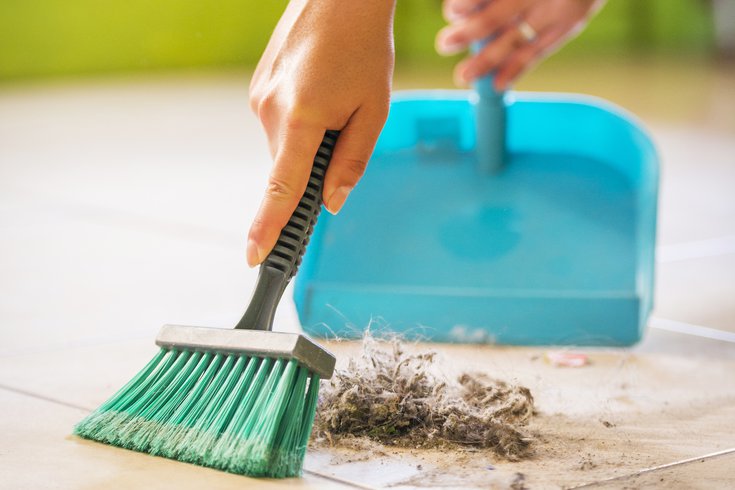
February 08, 2022
 Source/Image licensed from Ingram Image
Source/Image licensed from Ingram Image
Asthma triggers can vary from person to person, but many can be found in the home. Regular cleaning, including dusting, can help prevent dust mites and pet dander from prompting a flare-up.
An important part of managing asthma is identifying and eliminating triggers that exacerbate the chronic condition. Forty percent of asthma episodes are caused by preventable triggers in the home, according the U.S Centers for Disease Control and Prevention.
Asthma causes the airways in the lungs to become enflamed and narrow, causing wheezing, coughing and tightness in the chest. People of any age can suffer from asthma, but it typically begins in childhood. Treatment plans usually include medication, regular monitoring and the avoidance of triggers – factors that can lead to a flare-up or attack.
Triggers can vary from person to person, but the many of the most common types can be found in the home. And since people spend a lot of their time at home, eliminating triggers there is especially important, experts say.
Among the the potential household triggers: smoke from cigarettes, wood-burning fireplaces, dander and saliva from pets, mold and pests such as dust mites, cockroaches and mice.
Cleaning any visible mold in the home can help reduce exposure. Use soap, hot water and a strong brush. The bathroom can be a hot spot for mold. Running a dehumidifier and using the exhaust fan can help.
To keep pests out, make sure to regularly clean, especially dusting, vacuuming and washing all bedding. Store garbage outside and fix any leaks in the home as soon as possible.
When cleaning, avoid strong disinfectants which also can cause a flare-up of symptoms. Instead, use soap and water or a cleaning product that has been certified by the Environmental Protection Agency's Safer Choice Program.
The CDC also advises people with asthma to use allergen-proof mattress and pillowcase covers to add extra protection from dust mites. Avoiding clutter also can cut down on dust and mold.
Poor housing situations can make it difficult to keep these triggers out of the home, especially for people who live in rentals. There are programs, like the Children's Hospital of Philadelphia's Community Asthma Prevention Program, that can help improve living conditions. The CHOP program provides in-home classes and provides families with supplies to mitigate asthma triggers.
Other common asthma triggers, according to the American Lung Association, include respiratory infections, acid reflux, exercise and emotions. Certain medications such as aspirin and non-steroidal anti-inflammatory drugs can worsen symptoms in some people.
For other people with asthma, their biggest triggers are in the outdoors. In cities, this includes air pollution, smog and vehicle exhaust. Seasonal changes and extreme temperatures can bring on an asthma attack. So can a high pollen count. People whose asthma is triggered by these factors should check the air quality index and pollen count before leaving home.
Allergy testing can help people identify their triggers. Health care providers can help people pinpoint the factors that make their asthma worse and help them find solutions to avoid, or reduce, triggers.
The Mayo Clinic emphasizes that it is important to identify an asthma attack early so the symptoms won't be as severe and less medication will be needed to control it. When people feel an attack coming on – slight coughing, wheezing, shortness of breath – they should immediately remove themselves from any possible triggers.
A home peak flow meter can help people track their peak airflow which will make it easier to notice any slight changes in lung function. Keeping a diary of when and where flare-ups happen and how much quick-relief inhaler is needed to take to get symptoms under control also can help people better manage asthma.
People are advised to get medical help if they suffer an asthma attack and their symptoms don't improve after removing triggers and taking medication. If symptoms continue worsening, emergency attention may be necessary. Severe asthma attacks can be life-threatening.